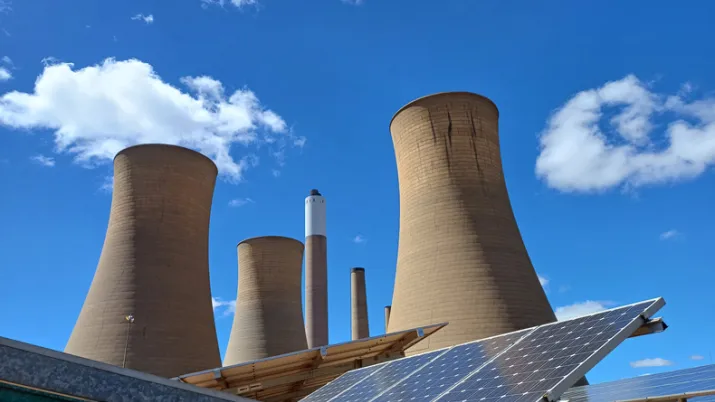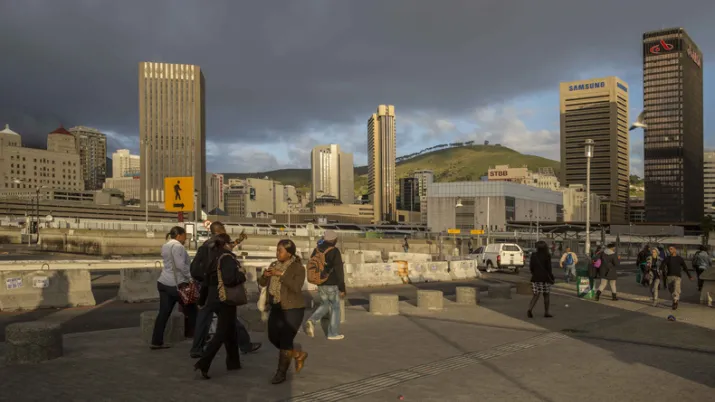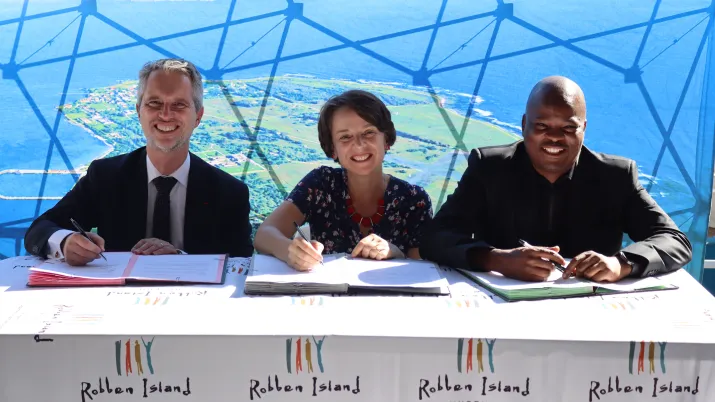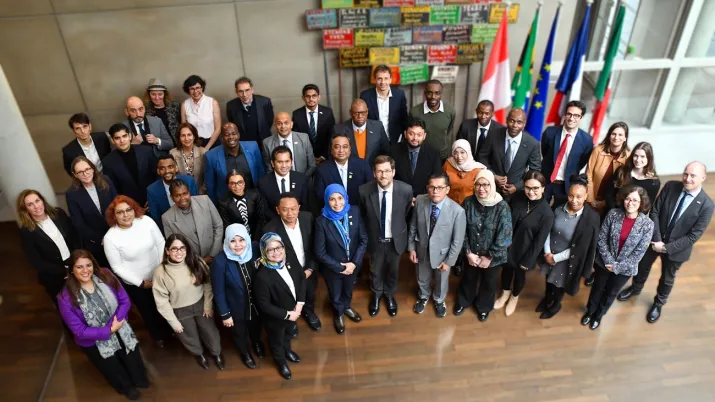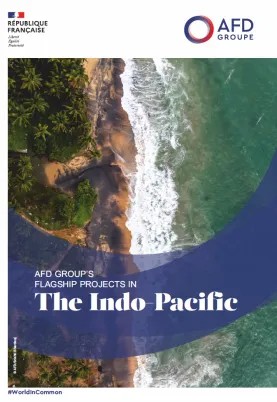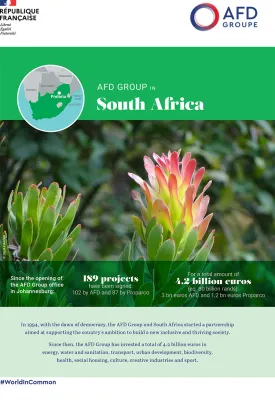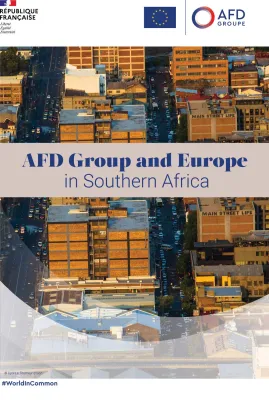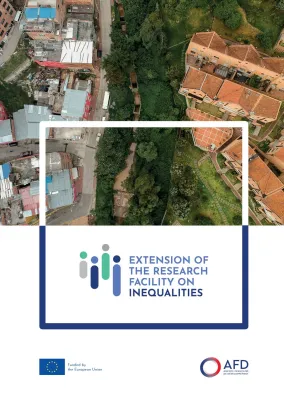Share the page
South Africa
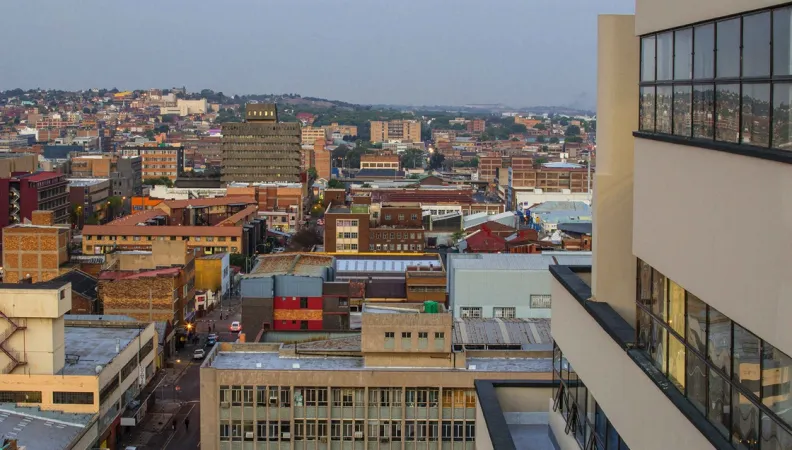
South Africa, one of Africa’s largest economies, is rich in minerals and has a developed financial sector but faces high socioeconomic disparities. As a coal-dependent economy, it is a major emitter of greenhouse gases, and yet is also highly vulnerable to climate change. Through its Just Energy Transition Investment Plan (JET IP), the government is pursuing a low-carbon, more inclusive development path, with the support of international partners. France’s €1 billion contribution to the JET is channeled through AFD, which focuses on strengthening climate resilience and reducing multidimensional inequalities.
Context
South Africa is one of the largest and most diversified economies in Africa, with a well-established financial sector and significant natural resources. But the country faces sluggish growth and high unemployment, particularly among young people. Deep social and economic inequalities persist, making South Africa one of the most unequal countries in the world, with limited social mobility. The country’s energy and infrastructure systems are also under strain.
AFD has been active in South Africa since 1994, mobilizing over €4 billion in investments across sectors such as renewable and conventional energy, transport, water and sanitation, social infrastructure, biodiversity conservation, and urban development. Through innovative financing solutions, technical assistance, and partnerships with government agencies, local authorities, and civil society, AFD aims to support the development of a low-carbon economy while addressing economic, social, and territorial inequalities.
In recent years, AFD has placed particular emphasis on promoting a just transition, aligning with South Africa’s national priorities to reduce greenhouse gas emissions while ensuring that the shift away from coal does not disproportionately disadvantage vulnerable populations. Focusing on social justice is key because of its significant potential to generate opportunities for local job creation as well as a means to redress socioeconomic inequality and injustices.
AFD’s interventions include large-scale public policy loans, investments in renewable energy, and the promotion of economic reconversion programs, as well as data-driven policy research to design targeted social protection measures and ensure equitable outcomes, including gender and youth inclusion.
AFD's South Africa office is directly attached to the Southern Africa Regional Office.
AFD and South Africa: a sustainable and innovative partnership
By collaborating with key local stakeholders, including public and private actors, academia, and civil society, the AFD Group aims to promote a just transition and reduce multidimensional inequalities.
Through the implementation of France's contribution to the Just Energy Transition Partnership (JET-P) (€1 billion by 2026), AFD will support South African authorities in achieving a just low-carbon transition, with particular attention paid to the most disadvantaged and vulnerable groups. While continuing existing cooperation in the transport and energy sectors, AFD will specifically aim to build on its proven expertise in the “just” dimensions of energy transition. AFD will continue to be a strong advocate for social justice in the energy transition because of its significant potential to generate opportunities for local job creation as well as a means to redress for past socioeconomic inequality and injustices. In this context, AFD will leverage French experience through peer exchanges and promote ongoing research in partnership with many South African institutions.
AFD aims to address inequalities (economic, social, spatial) beyond those potentially created by the energy transition. AFD’s resources will thus be mobilized to stimulate an inclusive economy, promote equitable access to basic services, strengthen governance of public enterprises, protect and restore biodiversity, manage water resources and ensure reliable access for all, urban planning, create social housing, provide quality and affordable education, promote public transport, enhance the resilience of the healthcare system, support social protection measures and job creation, and promote gender equality.
In the field
Below, find the country's projects, news, publications, and contact details in one click.
Projects
News & Press Releases
AFD Forges Strategic Alliance Between Paris Musées and South Africa's Robben Island Museum
Published on February 18, 2026
AFD Group brings together three major emerging economies to accelerate the energy transition
Published on December 30, 2025
Strengthening biodiversity cooperation between India and Southern Africa
Published on November 26, 2025
Publications & Media
Key figures
-
189 projects have been signed since the opening of the AFD Group office in Johannesburg, of which 102 by AFD and 87 by Proparco.
-
4.2 billion euros committed, of which 3 bn AFD and 1.2 bn Proparco.

